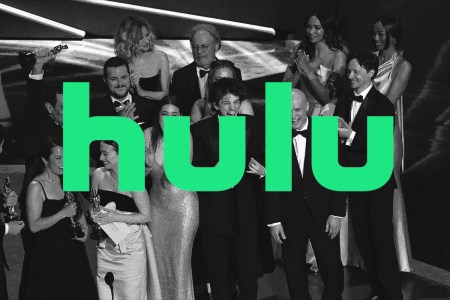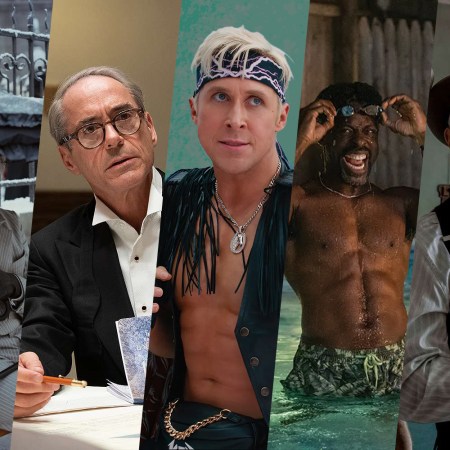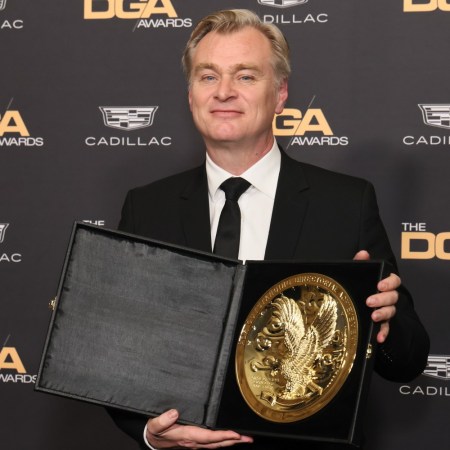It doesn’t take much effort to find someone in the film industry arguing that things were better in a bygone era. What’s notable about director Joe Russo’s comments to that effect, though, is the very specific language he used — and how off-the-mark those comments sound when given the slightest amount of scrutiny.
Here’s the context: Russo, together with his brother and collaborator Anthony, was interviewed by Jonathan Dean of The Times. The duo were there to discuss their new film The Electric State, which opened this weekend on Netflix to less-than-glowing reviews. (I haven’t yet seen The Electric State, but I have enjoyed the Russos’ MCU work, which often feels like the Platonic idea of an action blockbuster.) Dean raised the subject of the Academy Awards, and Russo offered a theory of the last few decades of prestige films and why many of this year’s box office hits weren’t Oscar winners.
“This trend was started by Harvey Weinstein. He vilified mainstream movies to champion the art films he pushed for Oscar campaigns. Popular films were winning Oscars before the mid-Nineties, then Weinstein started mudslinging campaigns,” Russo told The Times.
This argument manages the impressive feat of being inaccurate while also being in bad faith. First, there’s the matter of invoking Harvey Weinstein. I think it’s fair to say that almost any invocation of Weinstein in 2025 is not meant to be complimentary.
Plenty of industry observers and comedians have riffed on some recent Oscar darlings being relatively obscure — watch an episode of Real Time With Bill Maher around awards season and you’ll almost certainly hear a few quips to that effect. But it’s also possible to make a similar argument without tying it to a sex criminal. In fact, one of the producers of The Hurt Locker was literally banned from the Academy Awards ceremony in 2010 for promoting his film at the expense of Avatar.
There’s also the matter of what Russo means by “popular films.” As Slate’s Sam Adams pointed out on Bluesky, Russo is making this argument a little over a year after Oppenheimer — which grossed nearly a billion dollars — won big at the Oscars.
If we’re going to use 1996, the year Shakespeare in Love defeated, among others, Saving Private Ryan as a milestone for Miramax’s awards-season approach, it’s useful to look at some of the obscure art films that won Best Picture in its wake: Lord of the Rings: The Return of the King, Gladiator, Chicago and The King’s Speech. Black Panther, Avatar, Joker, and Hidden Figures were all nominated for Best Picture. There’s also the matter of Miramax’s acquisition by Disney in 1993, and the fact that neither of its biggest Oscar successes — The English Patient and Shakespeare in Love — are exactly experimental cinema.
Russo’s own logic gets even more convoluted when you consider the recent success of Everything Everywhere All At Once — a critical and commercial success that won no less than seven Academy Awards. You’d think Russo would be aware of this, given that he was one of the film’s producers.
How Did Hulu Botch the Oscars So Badly?
Subscribers were upset when their stream ended before Best Actress and Best Picture were awarded, proving that streamers still aren’t equipped to handle live eventsRusso isn’t wrong to note that the kinds of film that have won Oscars in the last few decades have shifted, but there are reasons for that that have nothing to do with disgraced studio heads. A list of Best Picture winners from the 1960s turns up a lot of musicals, for instance, a genre that’s much less widespread today. Peter Biskind’s books Easy Riders, Raging Bulls and Down and Dirty Pictures chronicled the rise of New Hollywood and the growth in American independent films that followed it; it’s not bizarre to think that these would have had an effect on the industry as a whole.
For film buffs raised on a certain kind of Oscar-bait movies, this shift is understandably frustrating. In 2022, Matt Damon discussed the effect that the loss of the wider DVD market had on what films were and were not being produced. In his review of the George Clooney-directed The Boys in the Boat, Vulture’s Bilge Ebiri wrote about the loss of “moderately ambitious and ennobling period pictures” over the years — to the point where an inspirational sports drama like Clooney’s film now feels like an outlier instead of a thoroughly mainstream piece of cinema.
All of which is to say that it’s strange to see Joe Russo — a filmmaker who’s directed some of the highest-grossing films of all time as well as an adaptation of an acclaimed novel about war, PTSD and addiction — argue that the line between “art films” and “popular films” isn’t very much in the eye of the beholder.
This article appeared in an InsideHook newsletter. Sign up for free to get more on travel, wellness, style, drinking, and culture.



















